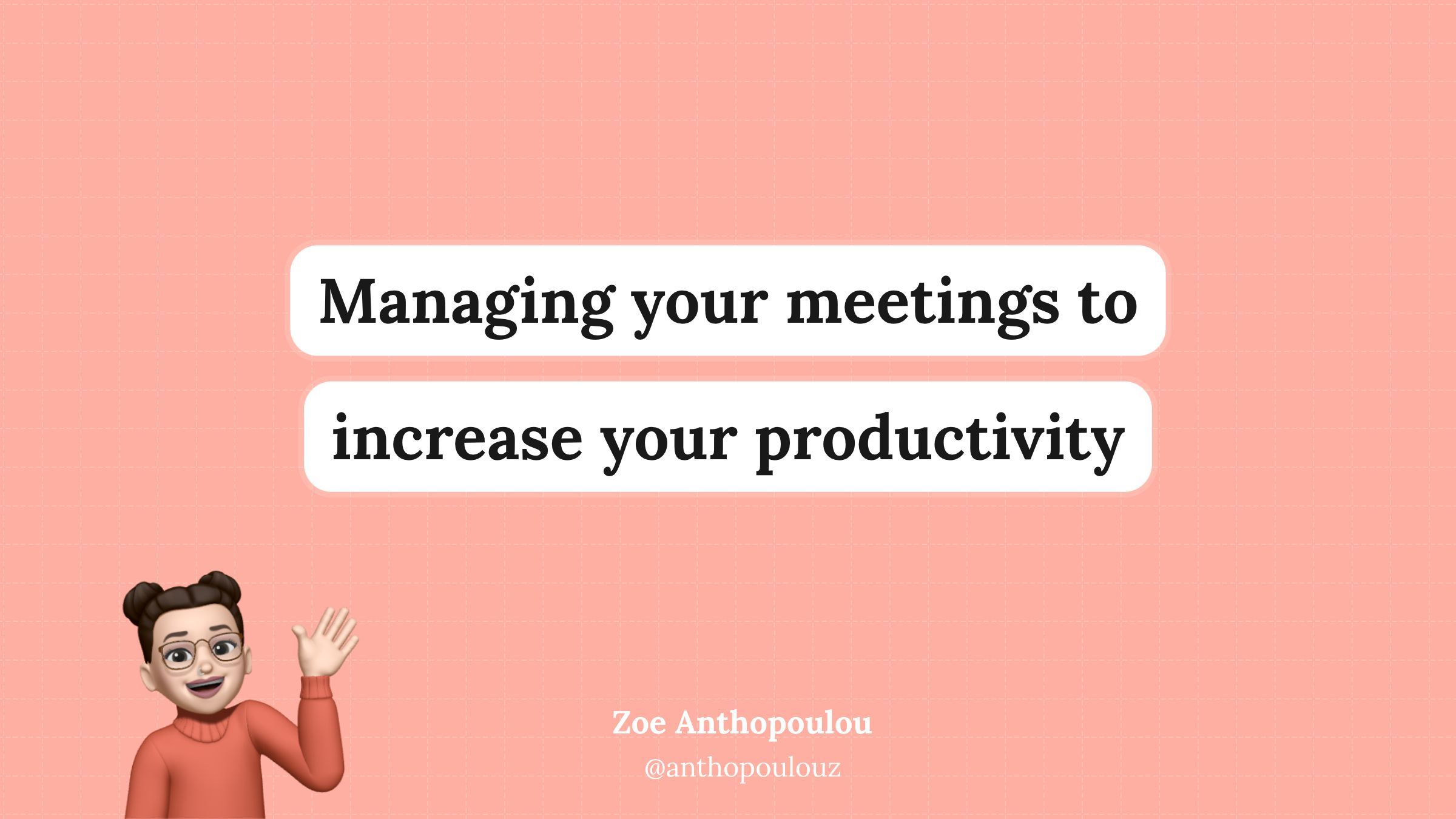Managing your meetings to increase your productivity

Zoe Anthopoulou
13 Mar 2024

Are you always in between meetings, feeling stressed, unfocused, and struggling to find time to actually do some work? Then this one is for you.
Picture this: It’s one of those days with multiple meetings scheduled. You are constantly trying to focus on a task and gain momentum, but you can’t. Interruptions from meetings break your focus and disrupt your workflow.
As you shift between tasks and meetings, you are constantly switching context, trying to adjust to new information and competing priorities. And each time you switch context, your brain requires additional time and effort to adjust and fully concentrate.
You end up feeling overwhelmed by the constant demands for attention and responsiveness, feeling unproductive and unfulfilled. Another day goes by, and you are still behind on your tasks.
Sounds familiar?
It’s true; meetings can be a real productivity killer if they go unchecked. Not only do they hinder your productivity and job fulfillment, but they also increase your levels of stress and frustration.
But how can you change this? I have 5 quick tips for you:
- Require an agenda: Requiring an agenda can not only help you filter out unnecessary meetings but also cut time off the necessary ones. You can set up a number of questions the organizer has to respond to before you join a meeting, starting with: What problem is this meeting looking to resolve?
- Block time: Blocked time on your calendar can be the time for you to deeply focus and gain momentum on your tasks. But this tip will not work if you are not willing to commit to it. You need to treat this time as sacred and avoid scheduling meetings during it. Remember: it’s your time; if you don’t respect it, no one will.
- Add Buffer Time: Try to schedule buffer periods between meetings, to give yourself time to decompress, and gather your thoughts. You can also use these buffer times to work on the actionable items from the previous meeting or some quick no-brainer tasks so you won’t have to work on them later in your day. This may give you more time later on to work on a bigger task.
- Leverage Technology: Don’t be afraid to utilize productivity tools to collaborate with your team asynchronously and manage your tasks efficiently. Asynchronous communication can prove to be very effective if you fit it to your team’s needs and processes.
- Learn to say no: Don’t hesitate to politely decline meetings that don't align with your priorities or where your presence isn't essential. This also goes for meetings that overload your already busy schedule. Most meetings can wait for a day or two, so you can always negotiate alternative meeting times to keep your schedule nice and clean.
Even if you don’t follow any of these tips by heart, it’s essential to recognize the importance of striking a balance between meetings and focus time to be productive in your role.
With this in mind and these tips as a starting point, you can adapt and refine your approach based on your specific responsibilities and work environment. The end goal, of course, is to create a schedule that works for you, and not a schedule that you need to work hard to keep up with.
